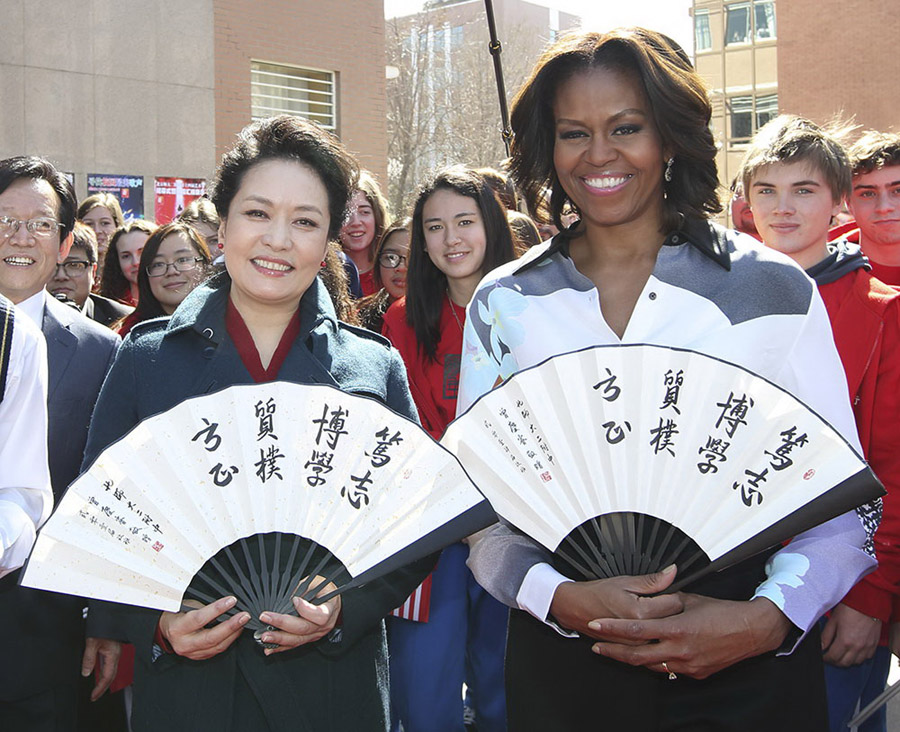
First Ladies' Charisma Adds to Politics on 'Center Court'
It is evident from the online buzz surrounding the trip that people have high hopes for the "Peng-Obama meeting." The first ladies of both countries are charismatic celebrities and fashion idols. Last year, Peng Liyuan accompanied President Xi on a tour of several countries, making her debut on the international stage as first lady of China. Her graceful, relaxed and clever mien has been dubbed "Liyuan style" by netizens and has been the subject of praise from people both within and outside of China. And as the mistress of the White House, Obama has shown a talent for using the politics of charm. She has untiringly worked to make an impact on several non-political, "soft" issues, and has succeeded in molding an image for herself of a "healthy, active and elegant" first lady. Her outfits have even become veritable auguries for the direction of American fashion.
However, the two first ladies are not only destined to receive the spotlight from the fashion media, as their shared stage remains that of U.S.-China diplomacy. In the U.S., the first lady is typically treated as a special kind of ambassador, and the first lady's charismatic brand of diplomacy is an organic component of the nation's soft power. Great power diplomacy is three-dimensional and includes meetings between personnel on multiple levels, among which diplomatic efforts between leaders and peoples both play a part. Similarly, there is no substitute for the close interpersonal exchanges afforded by "first lady diplomacy." As the saying goes, the husband sings and the wife accompanies him in harmony, with steel and softness intertwined. First lady diplomacy has an advantage in that it effuses a feminine softness and charm that brings greater empathy into politics. And as first ladies, Peng and Obama have poured out their charismatic energy onto the international stage and will certainly do much to enhance the political "main attraction."
Of course, compared with the excessive rationality and muscle flexing between their husbands on center court, first ladies typically do not directly touch upon sensitive political issues. Instead, they traditionally center on education, health, women, children, families and other social topics, all swathed in an atmosphere of warmth and repose. This is welcomed by many as a rare respite from the political locking of horns. The U.S. and Chinese first ladies' visits to the school and Forbidden Palace clearly speak to the issues of the home over those of the nation. Along with her mother and two daughters, three generations of Obama's family have made the trip to China, again underscoring the importance of family; likewise, the private dinner they were treated to by Peng Liyuan is also a high-level courtesy. Both sides use the subject of the home to tangentially make inferences about great power politics.
Essentially, first lady diplomacy is politics that doesn't talk politics. An interaction between first ladies is not the fashion show that some might imagine but rather a first-class showcase of political talent, the difficulty of which far surpasses most people's estimation. Their aptitude for this has always been able to bring an added dash of flair to the political exchanges of their husbands.
Now, the great battle in the politics of charm has begun. There is no greater demonstration of soft politics at work anywhere in the world. On the international political stage, the world will undoubtedly be watching the "friendship" between the two progress. Far from mere darlings of the fashion media, the two first ladies will certainly be a hotly discussed topic in international politics.
The author is a professor at Fudan University's School of Journalism.
